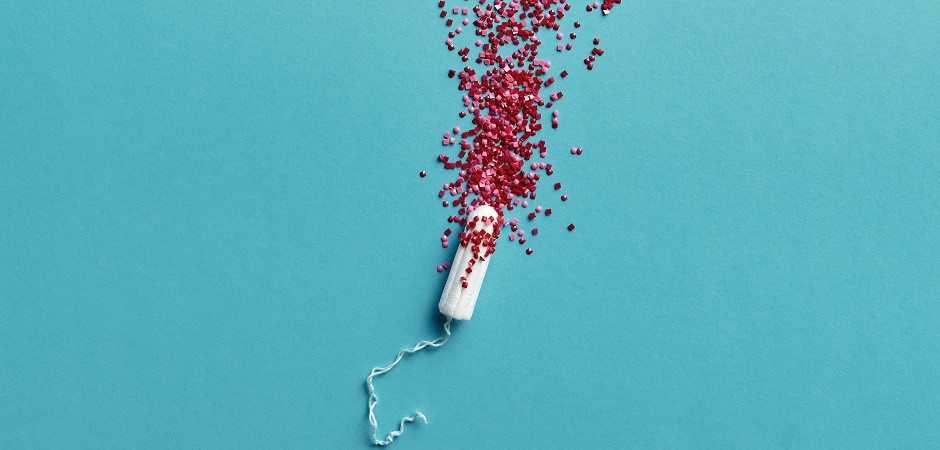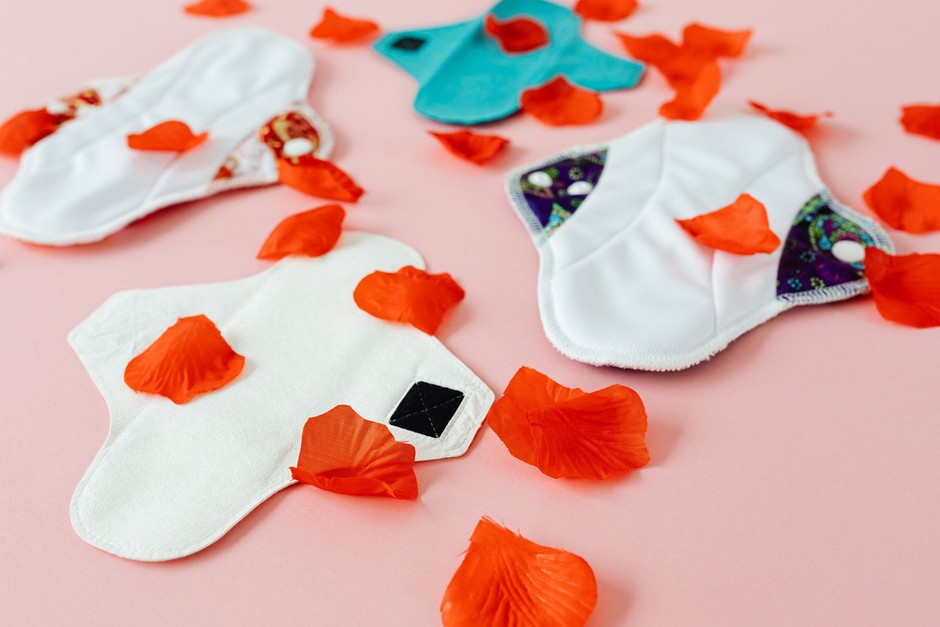Can Sex Bring On Your Period?
on Jan 31, 2023
Periods are nothing short of fascinating, but it’s normal not to have all the answers on how to do life with a cycle. That includes how having sex can affect you period. Luckily, we’ve got your back!

Moving into the menstruating phase of life is no small deal. It’s a symbol of maturity; a sign that our unique superpower as uterus-owners (that is, to make mini humans) has come online. But it’s also a very complex process. One which, unfortunately, many of us weren't taught a great deal about until... well, it was happening. Naturally, we may have been left with some lingering questions.
It’s common to wonder if sex can change or affect your period. With so many elements at play, how do we navigate the dos and don’ts? The best way to answer this is to start with the foundations of how having a period works.
How does your period work?
If you are a person with female anatomy, it’s highly likely you’ll experience bleeding from the vagina throughout your life. For uterus-owners, this typically begins between the ages of 10 to 15 and spans until late adulthood - around 45 to 55 years old - after which menopause begins. This bleeding usually happens on a monthly cycle, but everyone’s cycle looks a little different. A normal one is between 21 to 40 days, with the average cycle around 28 days.
Each month(ish), your body goes through four distinct phases that help prepare for your period, and during those phases your body is getting itself ready to have a baby (fear not, we’ll give you some advice on how to avoid that if a baby isn’t what you’re after). These phases are menstruation, the follicular phase, the ovulation phase, and the luteal phase.
Menstruation
This is when the bleeding happens. It’s the very first stage of a new cycle but the result of everything that has happened in the previous one (cool, huh).
Essentially, your body released an egg that was never fertilised (by a sperm) and during this time the uterus wall thickened (to prepare for a potential pregnancy). Now, it has to shed that lining. Since the capillaries and veins in the reproductive unit also became fragile, they’ll contribute to the blood that leaves the body too. This phase usually lasts 5 to 7 days.

During menstruation, your body experiences a flush of hormones (such as prostaglandin), resulting sensitivity - both physically and, quite possibly, emotionally. Sex can be a nice way to connect when the mushy feels are real, and there is nothing wrong with doing the deed on the bleed as long as it feels okay. Shower sex is good option to keep any stains at bay, and warming up with a massage can help with relaxation when the body is a little sore. PH balancing wipes might help you prepare, and lube, well... you know how we feel about lube!
Of course, it’s also fine if sex is totally off the cards during this phase.
Follicular phase
The follicular phase kicks off on the first day of your period but lasts until you begin ovulation. In this way, menstruation (the bleed) and the follicular phase overlap. During this phase, your clever brain triggers the ovaries to produce small sacs called follicles, and inside of each one of these follicles is an undeveloped egg.
Usually, only one egg reaches maturity and travels down the fallopian tube to the uterus, marking the start of the next phase, where the egg is available for fertilisation.
Ovulation phase
The ovulation phase is a short one. It usually lasts about 24 hours and happens on around day 14 or, roughly, a full week after your bleed. This is the time when you are mostly likely to fall pregnant, but that certainly doesn’t mean pregnancy can’t happen in the other phases of the cycle. Always be sure to use condoms or explore your options for contraception with a doctor you trust.
Luteal phase
You know those pre-period crampy feels? Yep, that’s this phase. The luteal phase happens after the mature egg has been released. The shedding begins internally and, if you haven’t fallen pregnant, your estrogen and progesterone levels lower, allowing the egg to be discharged and the uterus lining to descend.
The period cycle is one of mother nature’s wonders and these phases happen mostly due to changes in your hormones. This may lead some to believe that having sex can bring on, stave off, or affect the natural course of a period cycle. But can it?
Can sex bring on period cramps?
Not really. In fact, sex may help with period cramps. During an orgasm, or when your body experiences sexual pleasure, the muscles of your uterus contract. This also happens during menstruation. However, when it is the result of sexual stimulation the muscles also release and relax. This loosening may bring about some relief from period pain alongside the release feel-good chemicals, called endorphins, that sex triggers.

Some periods are heavy and can make you feel lethargic (as you now know, the body is doing a lot internally). So sometimes sex might just be a no go. Listen to your body.
Does sex make you bleed more?
Having sex while on your period won’t make you bleed any more than usual unless you’ve injured yourself. This is why it’s always a good idea to use lubricant. Having sex also can’t change your cycle or cause you to get your period at a completely different time, but it will screech everything to a halt if you become pregnant.
Something that can happen, however, is that, if you are already in the luteal phase, sex may help your body starts its bleed a fraction earlier. It likely won’t be noticeable, but those orgasmic contractions of the uterus may speed up the shedding of the uterine lining. This shedding was going to happen anyway, but getting freaky-deaky just jump-started the process.
Can sex make your period come back?
If you’re thinking, ‘I had sex after my period and started bleeding again, wft?’, then there may be something other than your period at play. A bit of jostling may cause some light spotting after your bleed has just finished, but having sex won’t bring your period back. If lots of blood occurs after you have sex, it may be the sign of a small tear, or a sexually transmitted infection. If this happens often, it’s best to consult your doctor or head to a sexual health clinic for advice.
Periods can be confusing and it’s okay not to know all the ins and outs. The key takeaways: track your period so you are aware of when you are in each of the phases; use protection if you don’t want to fall pregnant (even outside of ovulation); and respect your hardworking body when it’s asking for rest during your bleed. Happy releasing!
Top Toys for Vulvas















